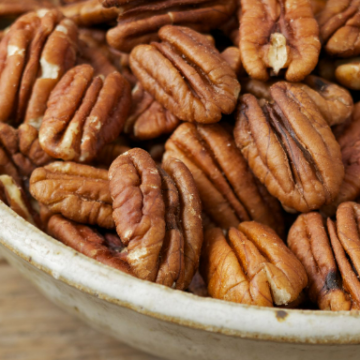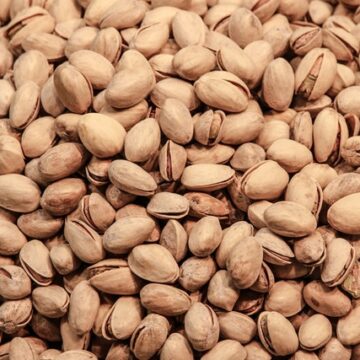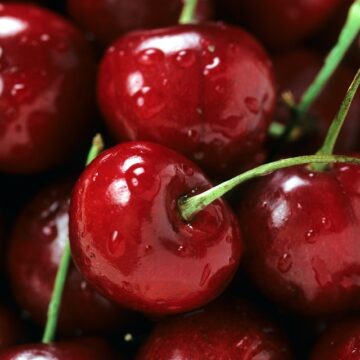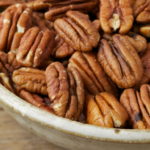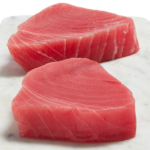Peaches and Pups: Can Dogs Safely Enjoy This Summer Fruit?
Summer is here, and with it comes a bounty of delicious fruits, including juicy, sweet peaches. While you may be tempted to share this seasonal treat with your furry friend, you may wonder if it’s safe for dogs to eat peaches. The good news is that peaches are not toxic to dogs, and in moderation, can be a healthy and tasty snack. However, there are some precautions you should take before giving your pup a bite of this summer fruit. As a responsible pet owner, it’s important to understand the potential risks and benefits of feeding your dog peaches. In this article, we’ll explore the topic of peaches and pups, including the nutritional value of peaches, potential health benefits and risks, and how to safely incorporate them into your dog’s diet. So, sit back, grab a peach, and let’s dive in!
Nutritional benefits of peaches for dogs
Peaches are a great source of vitamins and minerals that can benefit your dog’s health. They are a good source of vitamin A, which helps maintain healthy skin, coat, and eyesight. Peaches also contain vitamin C, which is important for boosting the immune system and preventing infections. Additionally, they are rich in fiber, which can aid in digestion and help regulate bowel movements.
In terms of minerals, peaches are a good source of potassium, which is essential for maintaining healthy blood pressure levels and heart function. They also contain small amounts of calcium and iron, which can help support strong bones and healthy blood cells.
While peaches are not a substitute for a balanced and complete diet, they can be a healthy addition to your dog’s meals or as a snack. However, it’s important to keep in mind that moderation is key, as too much of any food can lead to health problems.
Risks and safety concerns of feeding peaches to dogs
While peaches are generally safe for dogs to eat, there are some potential risks and safety concerns to be aware of. One of the main risks is the pit or stone, which can be a choking hazard and cause intestinal blockages if ingested. Additionally, the pit contains small amounts of cyanide, which can be toxic if consumed in large quantities.
To avoid these risks, it’s important to remove the pit before giving your dog a peach. You can do this by cutting the peach in half and removing the pit with a spoon or knife. Alternatively, you can puree the peach and strain out the pit before serving it to your dog.
Another risk to consider is the sugar content of peaches. While peaches are a natural source of sugar, too much can lead to weight gain and other health problems. It’s important to limit the amount of peaches you give your dog and to monitor their overall sugar intake from all sources.
Preparing peaches for dogs
If you decide to give your dog peaches, it’s important to prepare them in a way that is safe and easy for your dog to digest. You can serve them fresh, frozen, or cooked, but it’s important to remove the pit and any stems or leaves before giving them to your dog.
One way to prepare peaches for your dog is to slice them into bite-sized pieces and freeze them for a refreshing summer treat. You can also bake them into homemade dog treats or puree them and mix them into your dog’s food.
When introducing any new food to your dog’s diet, it’s important to do so gradually and in small amounts. This will help prevent any digestive upset or allergic reactions. If your dog has a sensitive stomach or food allergies, it’s best to consult with your veterinarian before giving them peaches or any other new food.
Alternatives to feeding peaches to dogs
If you’re not comfortable giving your dog peaches or if they have a sensitive stomach, there are plenty of other summer fruits that are safe and healthy for dogs to eat. Some examples include:
– Blueberries: These small, sweet berries are packed with antioxidants and fiber.
– Watermelon: This juicy fruit is a great source of hydration and contains vitamin A and potassium.
– Cantaloupe: Another hydrating fruit that is rich in vitamins A and C.
– Apples: These crunchy fruits are a good source of fiber and vitamin C. Just be sure to remove the seeds and core before giving them to your dog.
Signs of peach toxicity in dogs
While the flesh of the peach is not toxic to dogs, the pit and leaves contain small amounts of cyanide, which can be toxic if consumed in large quantities. Signs of peach toxicity in dogs include difficulty breathing, dilated pupils, seizures, and coma.
If you suspect your dog has consumed a large amount of peach pits or leaves, it’s important to seek veterinary care immediately. Your veterinarian may induce vomiting or perform a gastric lavage to remove any remaining pits or leaves from your dog’s digestive system.
What to do if your dog eats too many peaches
If your dog eats too many peaches or any other fruit, they may experience digestive upset, such as diarrhea or vomiting. In most cases, this will resolve on its own within 24-48 hours. However, if your dog is showing signs of severe digestive upset, such as bloody diarrhea or dehydration, it’s important to seek veterinary care.
To prevent overindulging in peaches or any other food, it’s important to monitor your dog’s intake and limit the amount of treats they receive. You can also incorporate fruits into your dog’s meals as a healthy and tasty addition to their diet.
Other summer fruits that dogs can safely enjoy
In addition to peaches, there are plenty of other summer fruits that dogs can safely enjoy. Some examples include:
– Strawberries: These sweet berries are a good source of vitamin C and fiber.
– Raspberries: Another sweet berry that is rich in antioxidants and fiber.
– Pineapple: This tropical fruit is a good source of vitamin C and bromelain, which can aid in digestion.
– Mango: This sweet and juicy fruit is a good source of vitamin A and fiber.
As with all treats and snacks, it’s important to monitor your dog’s intake and limit the amount of fruit they receive. Too much of any food can lead to health problems, so it’s important to maintain a balanced and complete diet for your furry friend.
Conclusion
In conclusion, peaches can be a healthy and tasty treat for dogs when given in moderation and prepared safely. They are a good source of vitamins and minerals that can benefit your dog’s health, but it’s important to remove the pit and limit the amount of sugar your dog consumes.
If you’re not comfortable giving your dog peaches, there are plenty of other summer fruits that are safe and healthy for dogs to eat. Just be sure to monitor your dog’s intake and maintain a balanced and complete diet.
As a responsible pet owner, it’s important to understand the potential risks and benefits of feeding your dog peaches and to consult with your veterinarian if you have any concerns or questions. With a little care and attention, you can safely share the joys of summer fruits with your furry friend.

